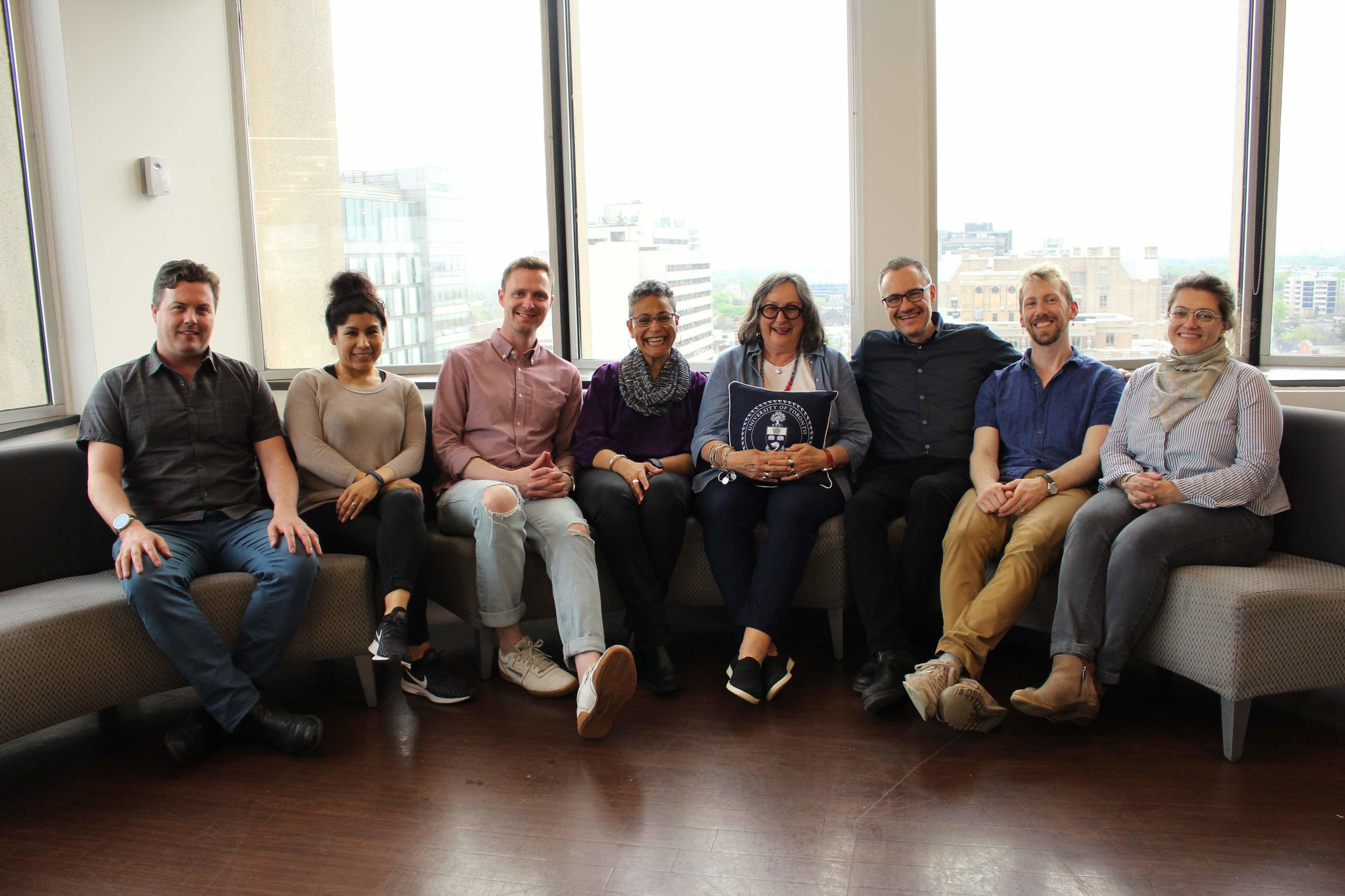Our Mission
The Toronto Writing Project supports educators to address equity issues in their classrooms through writing.
The Toronto Writing Project (TWP) was founded in 2015 by a community of university educators and classroom teachers who regard writing as a way to explore and address equity issues in K–adult classrooms. In that time, we have supported a local network of participating teachers through annual spring institutes, monthly creative writing workshops, a virtual book club and online speaker series, and a podcast, Teaching Writers Speak. Our Writing Project is rooted in many of the principles of other local sites of the National Writing Project—including regarding teachers as knowledge generators, recognizing research and teaching as coextensive, and regarding writing and the teaching of writing as a cornerstone of social justice education.
Situated in the Centre for Urban Schooling (CUS) at the Ontario Institute for Studies in Education (OISE), and supported by the Ruth and Alexander Dworkin Tolerance fund, the Toronto Writing Project focuses on three primary priorities:
1. Convening a diverse advisory board
Our advisory board is composed of educators whose experiences and perspectives span a range of institutional contexts, both in and outside of school. This board directs and sustains the Writing Project’s events and initiatives. Our members include K-12 teachers, adult and community educators, university and college professors, and graduate students.
Through monthly meetings, we explore the ongoing questions and dilemmas emerging from our respective sites of practice, as well as those animating the broader fields of critical literacy and practitioner research. These inquiries shape the Writing Project’s offerings over time. Ultimately, the Project is a reflection of our board’s interests, needs, and talents.
Members of our advisory board sit alongside Hilary Janks at the 2019 Spring Institute.
2. Building and supporting a local network of educators
We offer a variety of in-person and digital events and intellectual engagements, including annual institutes related to writing and equity and monthly writing workshops for teachers and youth. These initiatives create spaces for teachers across the Greater Toronto Area (GTA) to explore the many ways writing can support them and their students as they interrogate issues of culture, context, and identity in urban classrooms.
By making the public lectures, resources, and lesson plans available on our website, we aim to foster connections and collaboration across communities of practice, from the Centre for Urban Schooling, to the Toronto District School Board, the Toronto Catholic District School Board, community-based programs, community colleges, as well as teacher education programs such as the Master of Teaching program at OISE.
Attendees share Where I’m From poems at our first spring institute.
3. Linking with national and international networks of educators
Through our annual institutes, a digital speaker series available on YouTube, and the Teaching Writers Speak podcast, we bring world-renowned educators and scholars into conversation with local, national, and international communities of practitioners. In 2022, we formalized our relationship with the National Writing Project in the United States—the largest research network by and for writing teachers in the world.
Our digital platforms allow us to continue sharing our knowledge and experiences, and imagine collaborative research possibilities and future partnerships, with sites like the Manitoba Writing Project and the Philadelphia Writing Project, among others.



